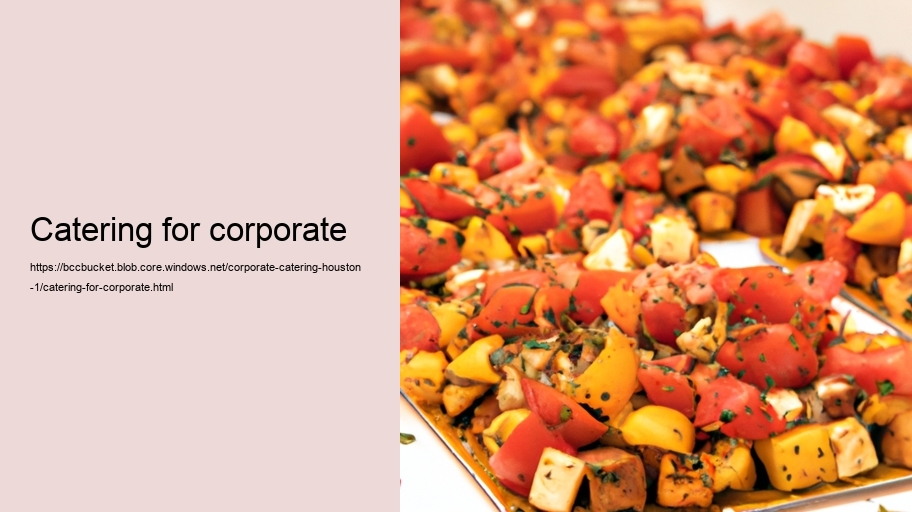Catering for corporate events is an essential aspect of the business world that extends far beyond mere provision of food and beverages. It is a service that embodies professionalism, reflects company values, and significantly contributes to the success of various corporate gatherings such as meetings, conferences, workshops, product launches, and employee appreciation events. This essay aims to unpack the nuances of corporate catering by exploring its importance, challenges, and best practices to ensure a seamless dining experience that complements any professional occasion.
At its core, corporate catering is about creating an environment conducive to the event's objectives while pleasing guests with culinary delights. Unlike social or private event catering—which may allow for more whimsical or personalized themes—corporate catering must align closely with the formal atmosphere and brand image of the hosting organization. The choice of menu items, presentation style, service quality, and adherence to dietary restrictions all play significant roles in how effectively a caterer can meet these expectations.
The importance of selecting an appropriate caterer cannot be overstated. A successful caterer understands that their offerings reflect on the host company’s reputation. Therefore, they must deliver high-quality food using fresh ingredients while ensuring flavors are balanced and appeal to a diverse palate. Moreover, punctuality is paramount; time is often at a premium during corporate events, so efficient service is necessary to keep schedules intact.
One challenge in corporate catering lies in accommodating various dietary requirements without compromising taste or presentation. With increasing awareness around food allergies, intolerances, and lifestyle choices such as veganism or vegetarianism—the modern caterer must be adept at offering inclusive options that satisfy all attendees. Additionally, understanding cultural sensitivities regarding cuisine plays into crafting menus that resonate with an international audience—a common scenario in today’s globalized business environment.
Best practices in corporate catering revolve around meticulous planning and communication between the client company and the service provider. Establishing clear expectations through detailed briefs helps ensure both parties are aligned from start to finish. It involves deciding on menu complexity—be it buffet-style meals for large conferences or plated dinners for intimate executive retreats—and determining logistics such as venue setup (including kitchen facilities), equipment needs (such as serving platters or chafing dishes), and staff attire appropriate for the occasion.
Sustainability has also become increasingly important within corporate catering services. Companies are now seeking caterers who employ eco-friendly practices like minimizing food waste through accurate headcount predictions or sourcing ingredients locally to reduce carbon footprint—all contributing positively towards a corporation's social responsibility goals.
In conclusion, effective corporate catering goes beyond just feeding attendees—it enhances overall experience by providing sustenance amidst busy agendas while subtly reinforcing brand ethos through deliberate culinary choices and impeccable service delivery standards. As businesses continue emphasizing the role of face-to-face interactions despite technological advancements facilitating remote connectivity—the craft of catering will remain integral in bringing people together over shared meals; forging relationships one plate at a time within professional contexts poised between formality and gastronomic pleasure.
